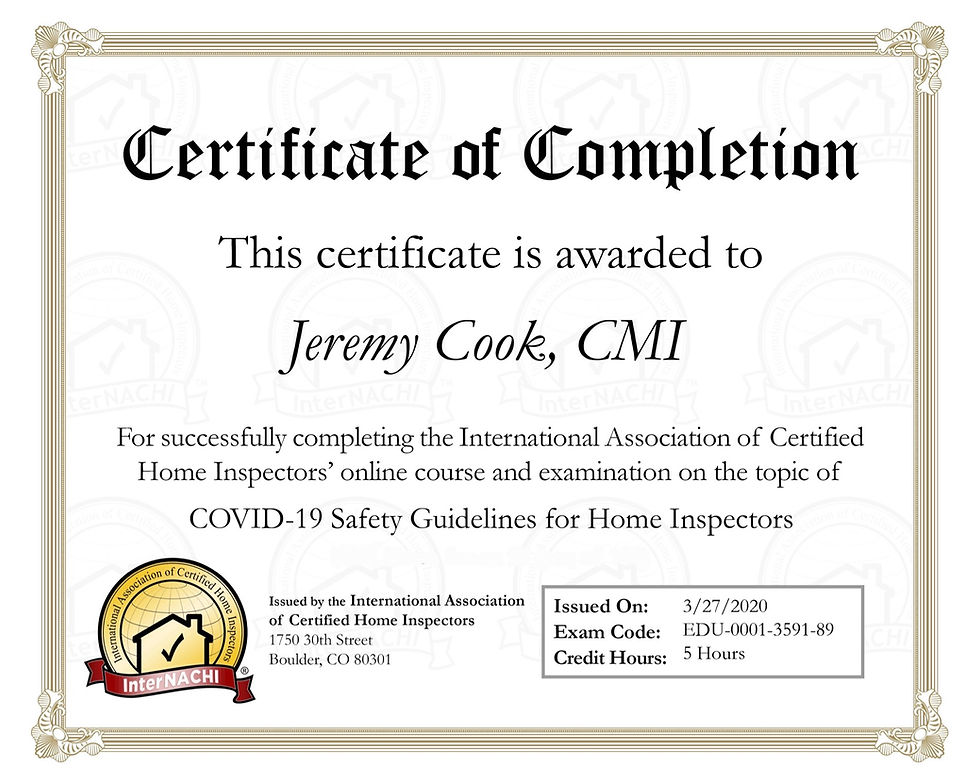Air Conditioning
- Jeremy Cook

- Feb 7, 2020
- 3 min read
Air Conditioner Maintenance: Beat the Heat Before it Gets Here
There's no denying it, spring has sprung. The sun is shining, flowers are blooming, and the birds have returned to nest. Summer is around the corner and we wanted to provide you with this Air Conditioner Guide to prepare your home for the heat waves we will surely be experiencing this summer.
It's important to consider the effects the summer heat will have on your cooling system. Like the majority of your home's systems, proper maintenance can help to increase your air conditioner's lifespan and ensure that it works properly.
Air Conditioner 101
Although there are many types of air conditioning systems, they all work on the same principle: moving heat from a relatively cool space to a relatively warm space. In the summer, air conditioners take heat from the air within a house and transfer it to the exterior. This heat may be transferred to the outside air, a body of water, or into the ground.
Air-Cooled Air Conditioning Systems
Air-cooled air conditioning systems are the most common. They have two main components:
1. The evaporator - which may be in the ductwork immediately above the furnace or in a fan coil in the attic.
2. The condenser - which is outdoors.
When most people picture an air conditioner they envision a large metal box that sits just outside of the home. It's an item you have to carefully rake around in the fall and clear snow off of in the winter - sometimes it even comes with its own special plastic cover. This box is the condenser unit.
The evaporator is inside the home. It is used to turn the refrigerant, the medium which carries the heat, from a liquid into a gaseous state.
Inside the condenser is the compressor: a pump that moves the refrigerant through the system and compresses the refrigerant, raising its temperature significantly. The compressor is the heart of the system.
Severe damage can occur to air conditioning compressors if they are turned on when the outside temperature is below 65º F (16º C). The life expectancy of a compressor is typically 10 to 15 years in moderate climates and as little as 8 to 10 years in hot climates. Depending on the age of the unit, replacement of a failed compressor may not be cost-effective. The unit may be so old that replacement parts are not readily available or the system might use an older refrigerant. In these cases it may be better to replace the entire condenser unit, rather than just the compressor.
It's important to make sure the condenser is on level ground (within roughly 10 degrees). The compressor or the refrigerant lines may be damaged if the unit is not level. So if your unit is on ground that is sloping towards or away from your home, this should be addressed.
You should also check to make sure that the condenser is positioned a safe distance away from exhaust discharge vents. Hot air discharging from a water heater exhaust vent or a dryer vent can affect the operation of air conditioning systems. These should be kept several feet from the condenser.
If your condenser is running loudly, the best course of action you can take is to contact a service specialist to diagnose and correct the issue. There are several causes of noisy condensers; a technician will be able to assess the problem and offer remediation advice. In fact, due to the complexity of air-cooling systems, if you suspect there is any kind of problem with your unit (noise-related or otherwise) engaging a service specialist is usually a good idea. Many of the complications you can encounter with your air-cooling system will be hard for the majority of homeowners to identify; working with a reputable technician can be very valuable. We recommend having a service person check your system annually to help ensure that everything is functioning normally.
There are also some maintenance tasks homeowners can assume themselves. These include:
Changing the filter - dust and dirt can build up on the filter, affecting the efficiency and performance of the unit. The cost of filters can range from $5 to $30, depending on the type you select. In most cases, the filter can be found in the ductwork near your furnace.
Helpful tip: write down the size of your filter before going to buy a new one.
Keeping your condenser clear of dirt and debris - dirt outside your condenser quickly becomes dirt inside your condenser as the fan draws air through the coils. A build-up of dirt, dust, leaves, and grass around the outside of the condenser will reduce airflow through the coils, compromising the functionality of the unit.






Air conditioner maintenance is essential to beat the summer heat. Regular upkeep ensures your system runs efficiently, extending its lifespan. Check your condenser for level ground and clear vents. If it’s noisy or malfunctioning, contact an HVAC Contractor. A professional can diagnose issues and perform annual checks to keep your home cool all summer.